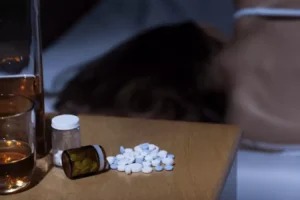
Early intervention helps prevent the worsening of the condition, potentially avoiding severe health problems, relationship breakdowns, or legal issues. We do not receive any commission or fee that is dependent upon which treatment provider a caller chooses. Join our supportive sober community where each day becomes a step towards personal growth and lasting positive change. We do not offer specific health advice, nor are we a remote clinical advice service (RCA).
Isolation and Withdrawal

We can, with your consent, pass your details to our partners that can offer this. We receive a commission if you begin treatment with a fee-paying provider. Individuals are likely to experience early morning tremors and shaking, leading to early morning drinking. This is the phase in that some individuals go ‘cold-turkey’ or try to reduce their intake, but these are usually failed attempts as the individual is unaware that they need medical help. Understanding the progression of alcoholism is important so you’re able to recognise the early signs and take action before it gets worse. This is a dangerous stage where the user can easily drink too much at any given point due to their high tolerance, or get behind the wheel when they shouldn’t.

Stage #1: Occasional abuse and binge drinking
Typically, this is about four to five drinks every two hours, but younger drinkers tend to exceed this, especially when drinking is the primary focus of the social gathering or party. Whether you or someone you care about is struggling with alcohol addiction, identifying these stages is the first step toward seeking the right treatment and beginning the journey to recovery. Call Nova Recovery Center today to learn more about our alcohol addiction treatment options and start your recovery journey now. As illustrated in The Jellinek Curve of Addiction and Recovery, the obsessive alcohol abuse will continue in cycles until you decide it’s time to get help. If you have an honest desire for help, addiction treatment for alcoholism can work for you. In fact, for many people, it leads to a rewarding and fulfilling life in sobriety.
- Outpatient treatment is less intensive than inpatient treatment or partial hospitalization programs.
- Time is crucial, you could be helping your mental and physical health if you reach out now.
- At this stage, the pattern and frequency of alcohol use are high enough to be dangerous to the individual and those around them.
- Drinking may start as a social activity or a way to unwind after a long day without any significant negative consequences at first.
- This pattern of excessive drinking often leads to periods of intoxication, where individuals may lose control over their behavior and decision-making abilities.
Stages of Alcoholism: Early, Chronic and End Stage
We utilize an accessibility interface that allows persons with specific disabilities to adjust the website’s UI (user interface) and design it to their personal needs. Although you must make the decision to break the cycle once and for all for yourself, there will be plenty of people along the way who support you and are willing to help you get sober and stay that way. Calls to any general helpline will be answered or returned by one of the treatment providers listed, each of which is a paid advertiser. End-stage kidney disease, also called end-stage renal disease, is the most advanced stage of kidney disease. The kidneys can no longer perform any function or filter fluid and waste.
- You may start to feel sick from heavy drinking, but enjoy its effects too much to care.
- Typically, this is about four to five drinks every two hours, but younger drinkers tend to exceed this, especially when drinking is the primary focus of the social gathering or party.
- In this initial phase, people might engage in social or binge drinking.
- If you have an honest desire for help, addiction treatment for alcoholism can work for you.
- If this continues, individuals enter a prodromal stage, also called the ‘early alcoholic’ stage.
Early intervention addresses the issue before a person progresses to severe dependence or chronic health problems from drinking. At this crisis point and final stage, everyone is aware of the effects of alcoholism. Serious health problems ensue, from liver and kidney disease risk factors, to heart failure, depression, and anxiety.
In the early stages of alcohol addiction, you may stages of alcohol intoxication not need to drink every day. However, many people who are on track to develop an alcohol use disorder do need to drink more to reach their desired level of intoxication. This is because they have developed a tolerance for alcohol, which contributes to the likelihood that they will become addicted. In addition, people suffering from alcohol dependence acquire tolerance.
You may also experience excessive sweating, increased heart rate, tremors (shaking), upset stomach or heart palpitations. When you drink, alcohol stimulates GABA production, causing sedation and other effects on the body. GABA is a neurotransmitter, which is a chemical that carries messages between nerve cells. Over time, alcohol use changes the balance of GABA and glutamate signals in your CNS. Adelante Recovery Center is here to help those battling drug and alcohol addiction.

Like other chronic diseases, AUD can be successfully managed, allowing you to live a full and healthy life despite your disorder. At this stage, a person is experiencing multiple problems or dangers in their life due to alcohol misuse. People with moderate AUD often benefit from inpatient residential programs or more intensive treatment options. People with alcohol addiction physically crave the substance and are often inconsolable until they start drinking again. At this point, you have an attachment to alcohol that has taken over your regular routine. You’re aware of the adverse effects, but no longer have control over your alcohol consumption.

It is often dangerous and nearly impossible for a person with drug addiction treatment severe AUD to recover on their own. Alcohol withdrawal syndrome can produce life-threatening symptoms, but safe, medical detox can be done in a treatment facility. Professional, evidence-based treatments for alcohol use disorder are available — you just have to ask for help. The beginning of alcohol misuse could start with occasional excessive drinking, but even these episodes can cause brain changes. Chronic alcohol use can compromise brain function, making it difficult for a person to control their misuse and leading to chronic misuse.